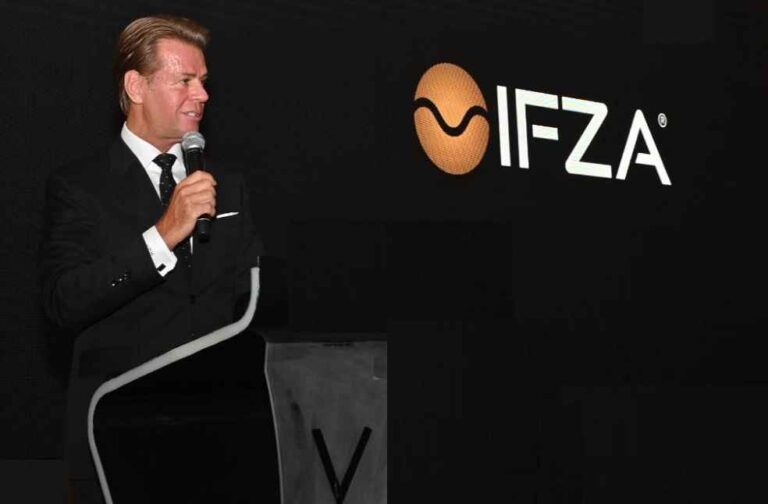As the world transitions into a post-pandemic period marked by ‘de-globalisation,’ nearshoring is becoming the new norm in international trade, according to Dr Mohammed Al Zarooni, Chairman of the World Free Zones Organisation (World FZO). Speaking at the 9th Annual International Conference & Exhibition (AICE) in Dubai, Dr Al Zarooni explained that value chains are shifting from global to regional in order to be closer to suppliers and consumers.
Dr Al Zarooni emphasized the crucial role of free trade zones as new production sites for sustainable industries, driven by renewable energy sources like solar and hydrogen. He also highlighted the increasing importance of cross-border e-commerce, predicting its share in international trade will rise from 20% today to 35% within the next five years. Furthermore, digitalisation is transforming international trade, with data centers and information storage now representing 55% of global trade and services, valued at over $3.8 trillion.
 Martin G. Pedersen, Chairman of Dubai-based IFZA, stressed the importance of free zones in fostering opportunities and adapting to change. He encouraged adopting a global outlook, as well as embracing remote cooperation, particularly in the realm of artificial intelligence (AI), which is projected to contribute up to $16 trillion to the global economy by 2030.
Martin G. Pedersen, Chairman of Dubai-based IFZA, stressed the importance of free zones in fostering opportunities and adapting to change. He encouraged adopting a global outlook, as well as embracing remote cooperation, particularly in the realm of artificial intelligence (AI), which is projected to contribute up to $16 trillion to the global economy by 2030.
The conference also featured a discussion on the theme ‘An Ecosystem of Trust Driving Prosperity,’ led by Lars Karlsson, Global Head of Trade and Customs Consulting at Maersk. Karlsson outlined the need for standardisation, digitalisation, and risk and compliance management in order to build an ecosystem of trust in Global Trade 2.0.
TRADE TECH: Tech’s Impact: E-commerce, AI, Blockchain Transforming Trade



